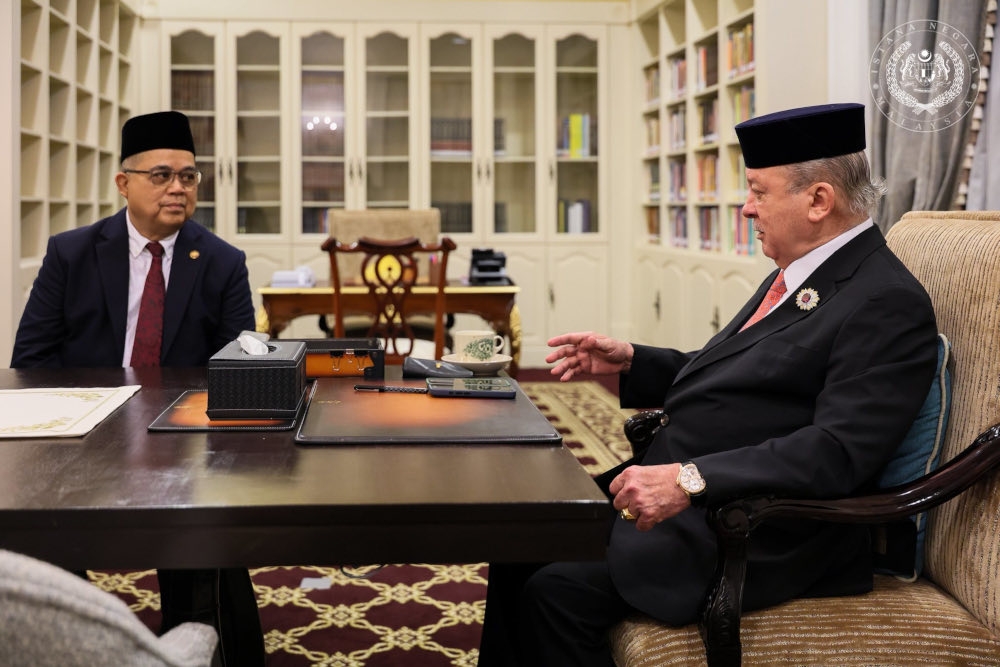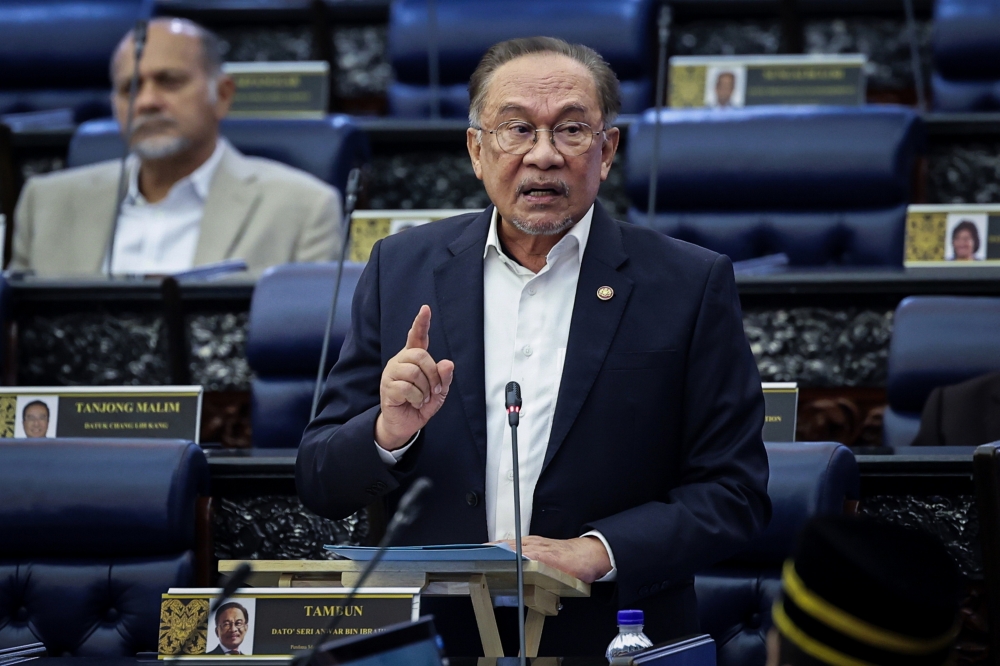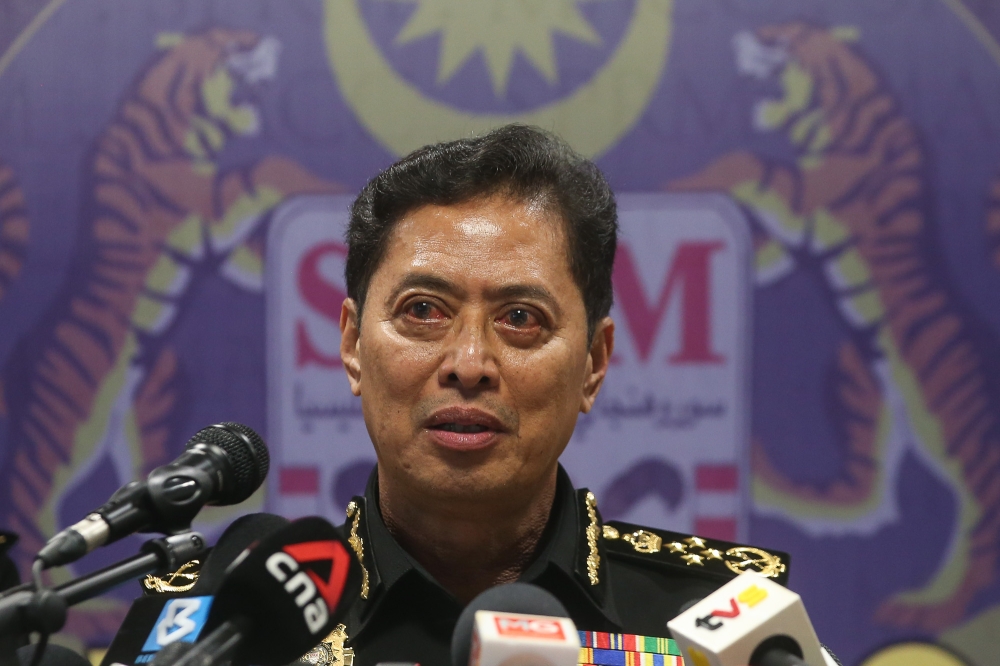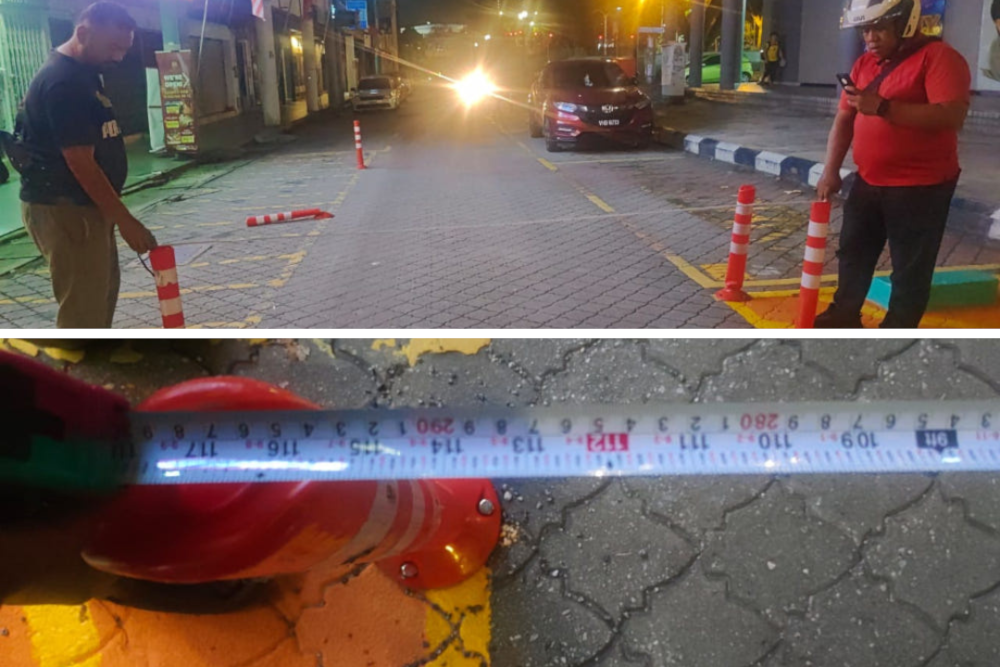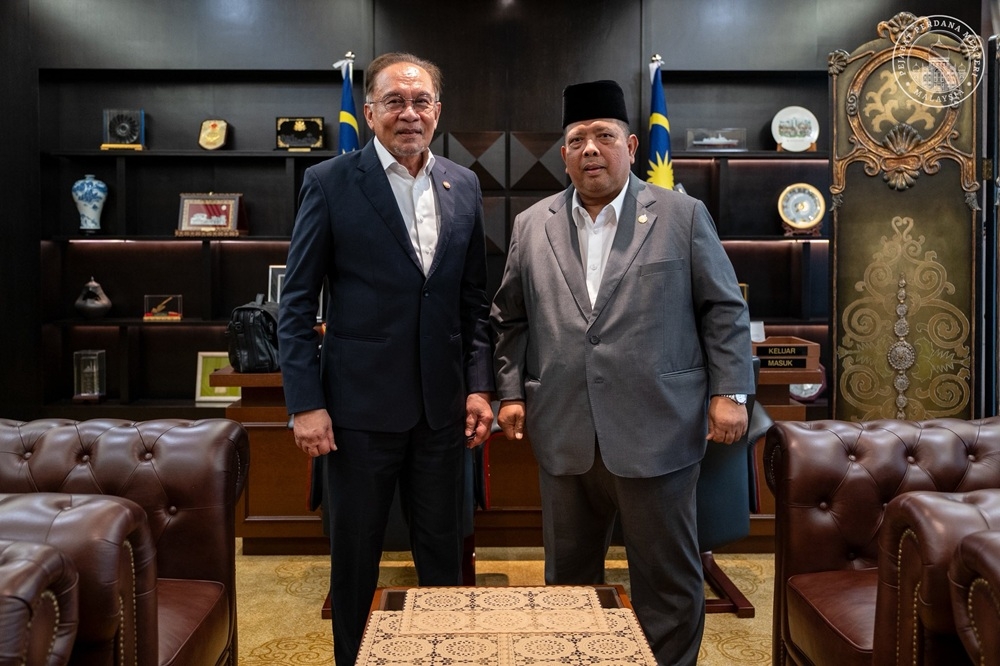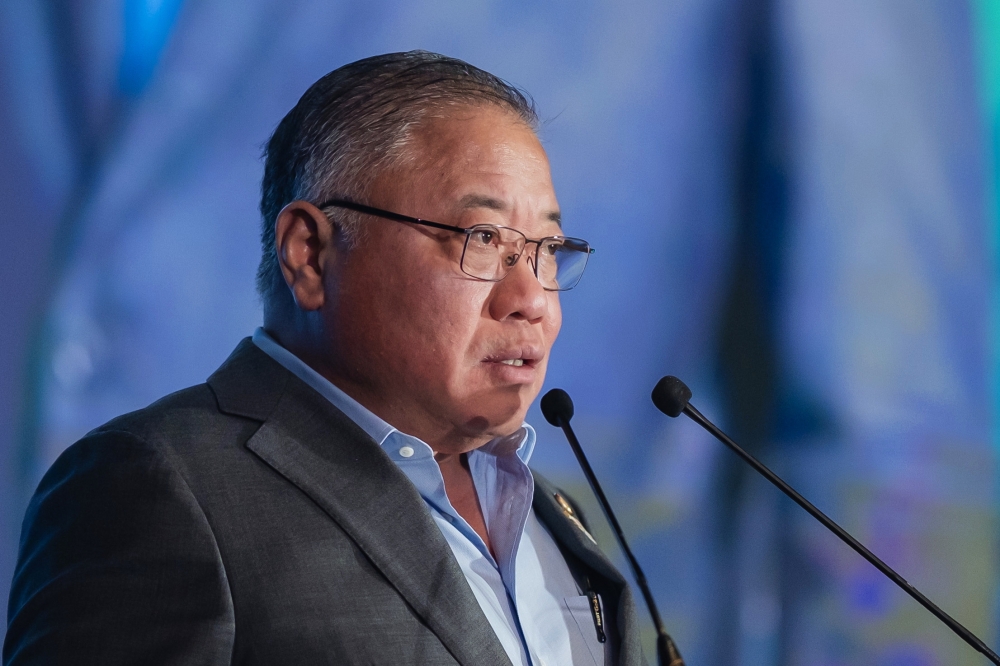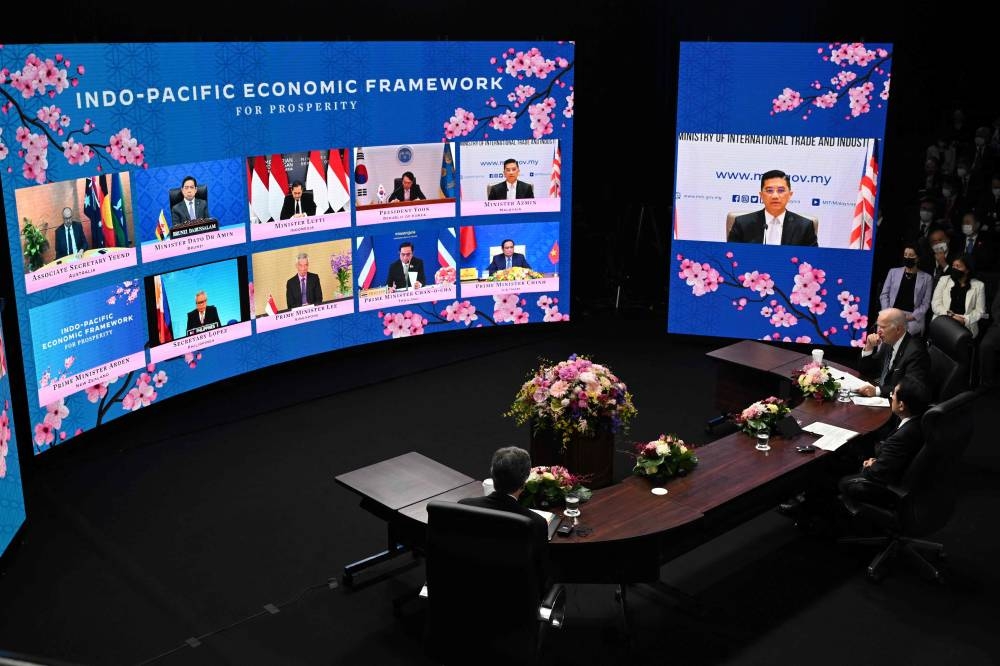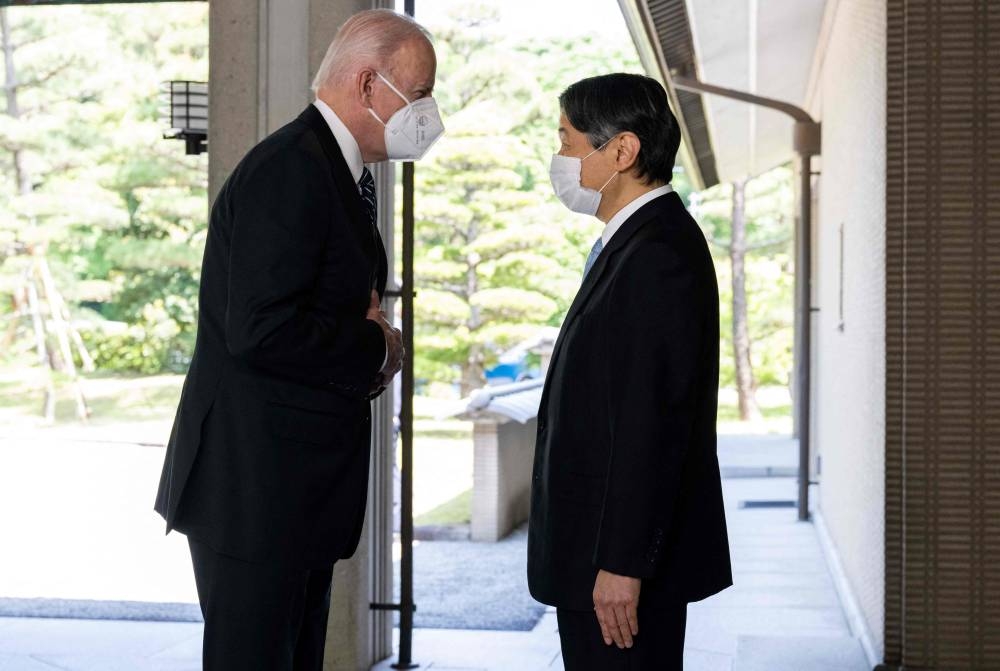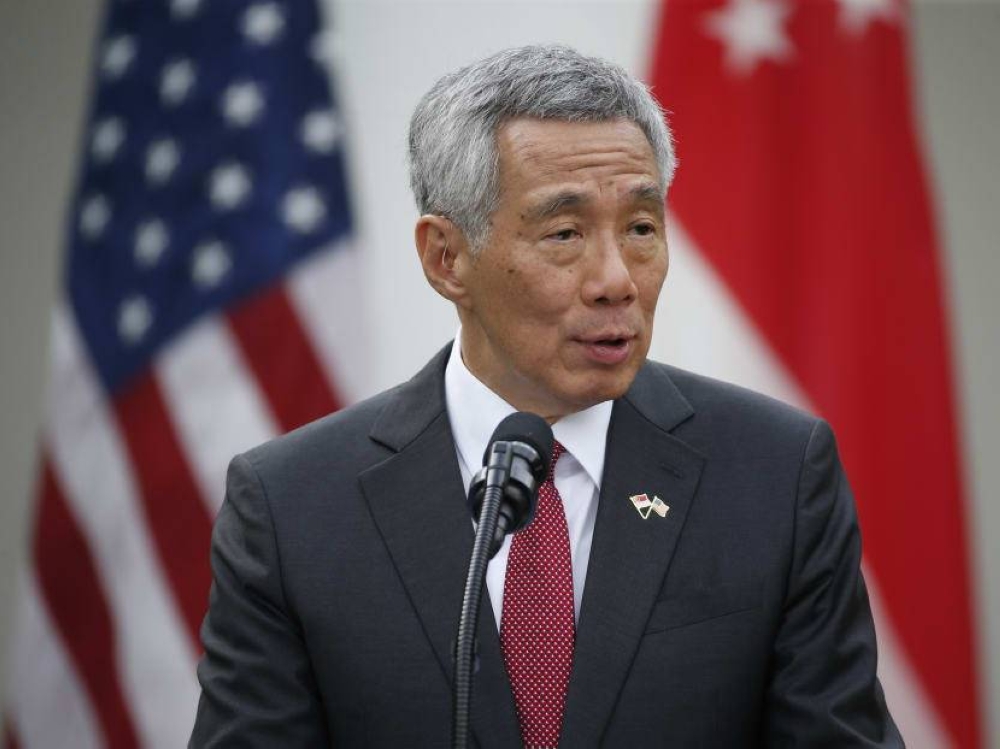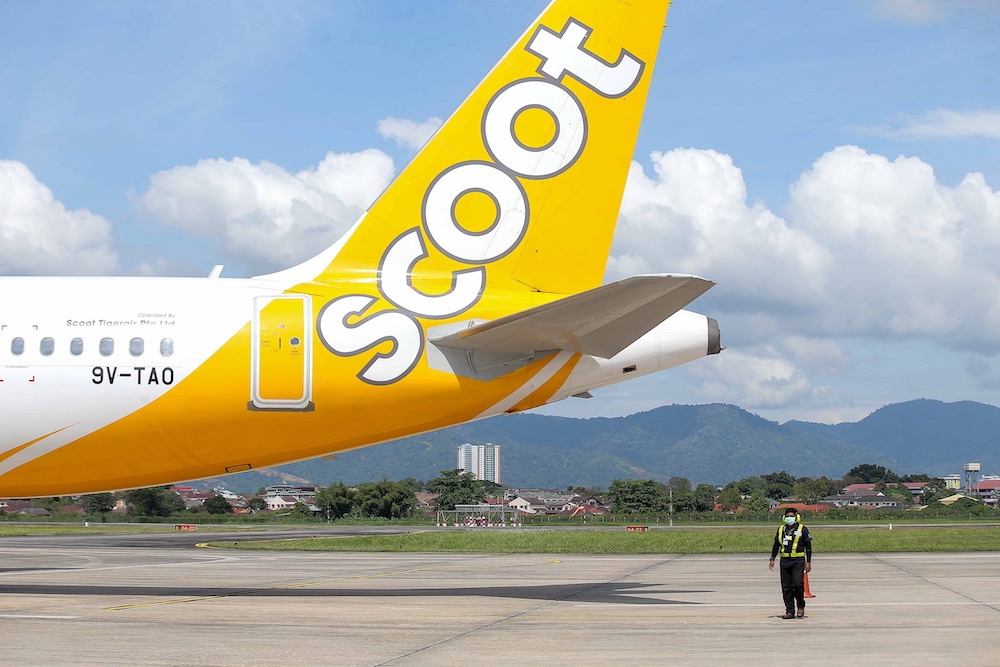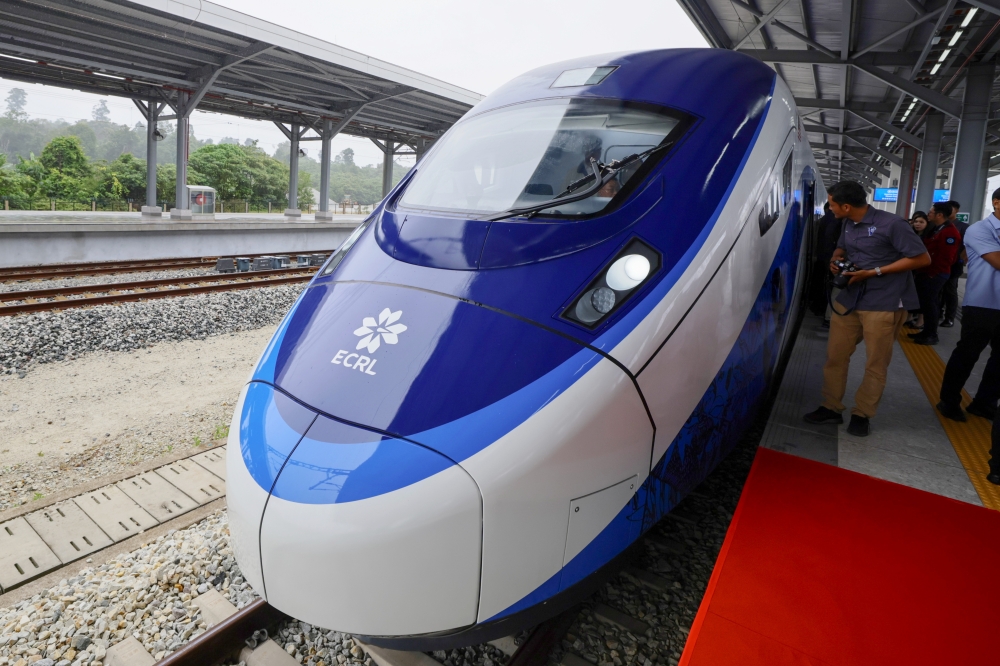KUALA LUMPUR, May 23 — The Indo-Pacific Economic Framework for Prosperity (IPEF) provides a strategic framework — both bilateral and multilateral dialogue platforms — for trade and investment matters for Malaysia with US and its framework partners, Senior Minister of International Trade and Industry Mohamed Azmin Ali said.
US President Joe Biden will launch the IPEF later today, alongside Malaysia and other partnering countries, namely Australia, Brunei, India, Indonesia, Japan, South Korea, Malaysia, New Zealand, the Philippines, Singapore, Thailand, and Vietnam.
“I am optimistic that this cooperation acknowledges that our economic policy interests in the region are intertwined; and deepening economic engagement among partners is crucial for continued growth, peace, and prosperity,” he said in his tweets today.
Mohamed Azmin said framework partners will engage in negotiations on areas of cooperation under four pillars, namely, trade, supply chains, clean energy, decarbonisation and infrastructure, as well as tax and anti-corruption.
This will strengthen regional economic cooperation, and (there will be a shared) commitment with regards a free, open, fair, inclusive, interconnected, resilient, secure, and prosperous Indo-Pacific region (in order to achieve) sustainable and inclusive economic growth, he added. Biden arrived in Japan yesterday to launch IPEF for greater US economic engagement with the Indo-Pacific, and also to reinforce ties with Japan.
Later, at the virtual launch of IPEF today, Mohamed Azmin said Malaysia was fully committed towards the success of the framework as the government began collective discussions towards future negotiations of the four pillars. He said Malaysia believes the IPEF should be an all-inclusive platform, and it was imperative to continue engaging all Asean member states to articulate the enduring relations enjoyed on all dimensions of cooperation between US and the region.
“I am hopeful that the framework will open up new opportunities to explore and enhance cooperation in areas of mutual interest, such as strengthening supply chain resilience, the digital economy and clean energy,” Mohamed Azmin said.
He noted that the IPEF could act as a broad structure for collaborative resolution of issues through cooperation, capacity building and technical assistance.
In turn, it could serve as an impetus to enhance competitiveness, economic resilience, and post-pandemic recovery for sustainable and inclusive regional growth, he said.
“By giving special focus on the trade and investment agenda, we stand to benefit through a more purposeful approach towards achieving the common objective of making the Indo-Pacific an open, connected, prosperous, resilient and secure region,” Mohamed Azmin said. — Bernama







